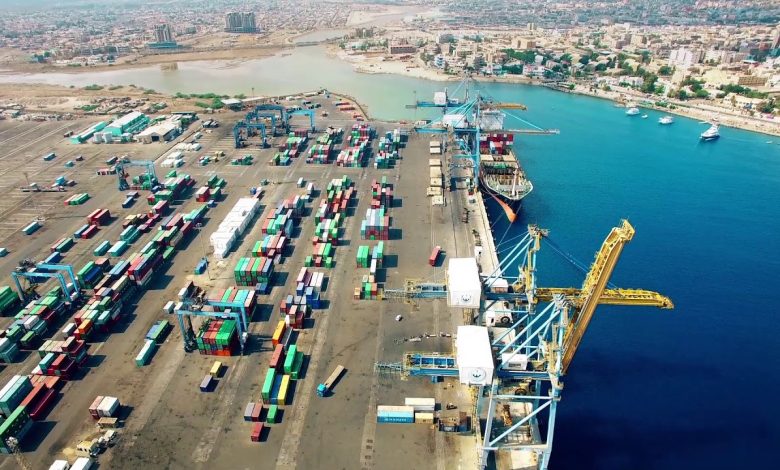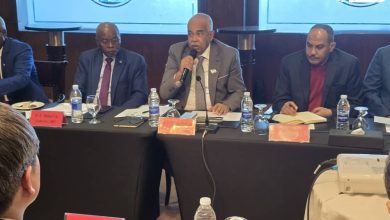The State’s Exit from Economic Activity…Remedies and Warnings

Report – Nahid Oshi
The frequency of demanding the state to exit the production and trade sector and the economic cycle and leave the matter to the private sector is increasing so that it can carry out all economic activity, including services, agricultural, industrial and trade sectors. The head of the Leather Exporters Division, Khaled Mahmoud Harono, considers the importance of the state’s exit from production and services in favor of the private sector, but he warned against the necessity of having a control mechanism and careful monitoring so that the state can govern the issue and take its rights. He said that leaving the matter to the private sector without monitoring and provisions, the state’s revenues will be wasted and the private sector will not be able to carry out the work entrusted to it.
Growth of the private sector:
In his speech to (Sudan Events), he said that the state’s exit from the agricultural and industrial sectors constitutes an opportunity for the growth of the private sector and there will be development of mechanisms, equipment and technology. He added that this step does not take place randomly or in a hurry, but rather it must be arranged in a good manner that enables the state to exercise its rights and achieve the required development. .
Economic management crisis:
The economic expert, Dr. Haitham Mohammad Fathi due to the need for the state to exit the economy in order to awaken it. He said that just as it entered with great enthusiasm, it must exit it with greater enthusiasm, and he added that
The matter is no longer a local requirement, but it has become a global requirement, and companies must be offered for sale in the spirit of an investor, not the spirit of the state.
Pointing out that the crisis in Sudan is a crisis of economic management, and that the Sudanese government does not have the mind of an investor, so there must be investment thought in order for us to witness great development.
He said that state production represents a burden on investment and on the state itself due to the emergence of many economic problems that the economy has experienced, including the increasing severity of structural imbalances and the deterioration of the standard of living of citizens due to closed policies and adherence to adopting a centrally directed economy management method, while neglecting the market economy and its mechanisms.
Therefore, the private sector must be encouraged to invest, participate in all economic fields, and try to activate market forces.
Out of service :
The Secretary-General of the Leather Exporters Chamber, Mohammad Ali Hassan, pointed out the isolation of the role of the government sector due to the measures to remove empowerment, and it has been out of coverage since the year 2019, indicating that there were companies that were affiliated with livestock and others affiliated with petroleum, as they were providing goods to citizens, and after 2019 they began to create other interfaces through the private sector. For example, the petroleum companies that were public companies have now been allocated to private sector companies (Nabta, Qadirah, and Al-Nahla), although they are old companies, but they dominated the petroleum business after 2019 and created alternatives in the private sector, such as gas. Gum Arabic, Cotton and Animal wealth.
He pointed out that 90% of the livestock sector had been seized by the Rapid Support Militia, including skins and live animal exports (cows, camels, sheep), in addition to the gold sector, which was seized by huge companies and dominated by those forces.
In addition to agriculture, Emirati companies began to enter into the field of agricultural investment in the Nile River, indicating that all the strategic sectors that the state was involved in through its companies have now been eliminated and have become out of service, in addition to the lack of security and stability for the government and the citizen due to the war that has entered its second year and affected On the citizen, the public and private sectors.
Partnership between the two sectors:
He pointed out the importance of the presence of the public sector in the economy in terms of providing the citizen’s needs for goods at acceptable prices and supporting the citizen and the market. He said that the majority of companies and factories were based in the Bahri industrial zone, and because of the war, all the infrastructure of the factories was destroyed, cutting off the importance of the presence of the public sector in the economic cycle. He said Unfortunately, the private sector does not have the ability and capacity to provide the manufacturing components. He said that the cost of establishing a leather tannery amounts to one million dollars, and he warned of the necessity of activating smart partnerships between the public and private sectors in order to push the wheel of the economy and production forward.
Financing production operations:
Head of the Livestock Exporters Division, Dr. Khaled Al-Maqbool pointed out that agricultural and animal production is carried out by the private sector. He said that even government projects, such as the Al-Jazeera project, are based on the farmer who cultivates the areas, and then comes the role of the industrial and service sectors, the transport sector, the health, education and communications sectors. The state in any healthy economy is an organizer and facilitator of economic operations and the role of the state. In productive operations, it is done by financing the operations for which private sector capital charges, and the profits are useless or attractive to the private sector. He said here comes the role of the state to fill this void and intervene in those operations and break the barrier of cost and profits so that it becomes attractive to the private sector.
The following are the transport sectors (trains, buses). He pointed out the importance of the state operating and regulating them, and said that the lack of the state in the public transport service (transportation) is considered a problem because the vehicle owner is only committed to his personal interest in terms of providing the service, tariffs, and timing of the production process and the movement of the citizen.
Red line:
What is acceptable is that the public transportation sector is a red line and he said that the state must enter into it in terms of organization and taking into account comprehensiveness, continuity, and comprehensive coverage of all parts of the country through an integrated network that serves all sectors. As for the railway and river sectors, the state can enter into it as a partner or facilitator and in light of political problems and wars. Regional and intersectional interests show the importance of having a Sudanese carrier line that can cover the gap of international commercial lines. He added, in light of the presence of private air transport lines, the presence of state airlines is also important, and then the presence of private sector companies competing.
In addition to railway transport, the state can establish infrastructure and broad and fast lines, and then private sector companies can enter as a partner in operating and bringing in locomotives. As for the lines, their installation, building structures and constructing roads, the task of the government sector is a task that the private sector cannot accomplish alone. It is possible to work with the bot system and provide adequate guarantees. And with participation. The Sudanese private sector with other sectors
Gradual withdrawal:
As for the state’s involvement in trade and industry, Dr. Khaled alerted to the need for it to be completely far away from it and withdraw from it and only carry out large strategic industries because they require large capitals that the private sector may not be able to do alone. The state can gradually involve the private sector until it strengthens its return and has Balances of profits enable it to own strategic industrial projects or integrate with other partners, and the state takes its shares, as is the case in America, where private companies manufacture weapons and sell them to the state. He pointed out that the role of the state in developing countries such as Sudan differs from its role in developed countries.



